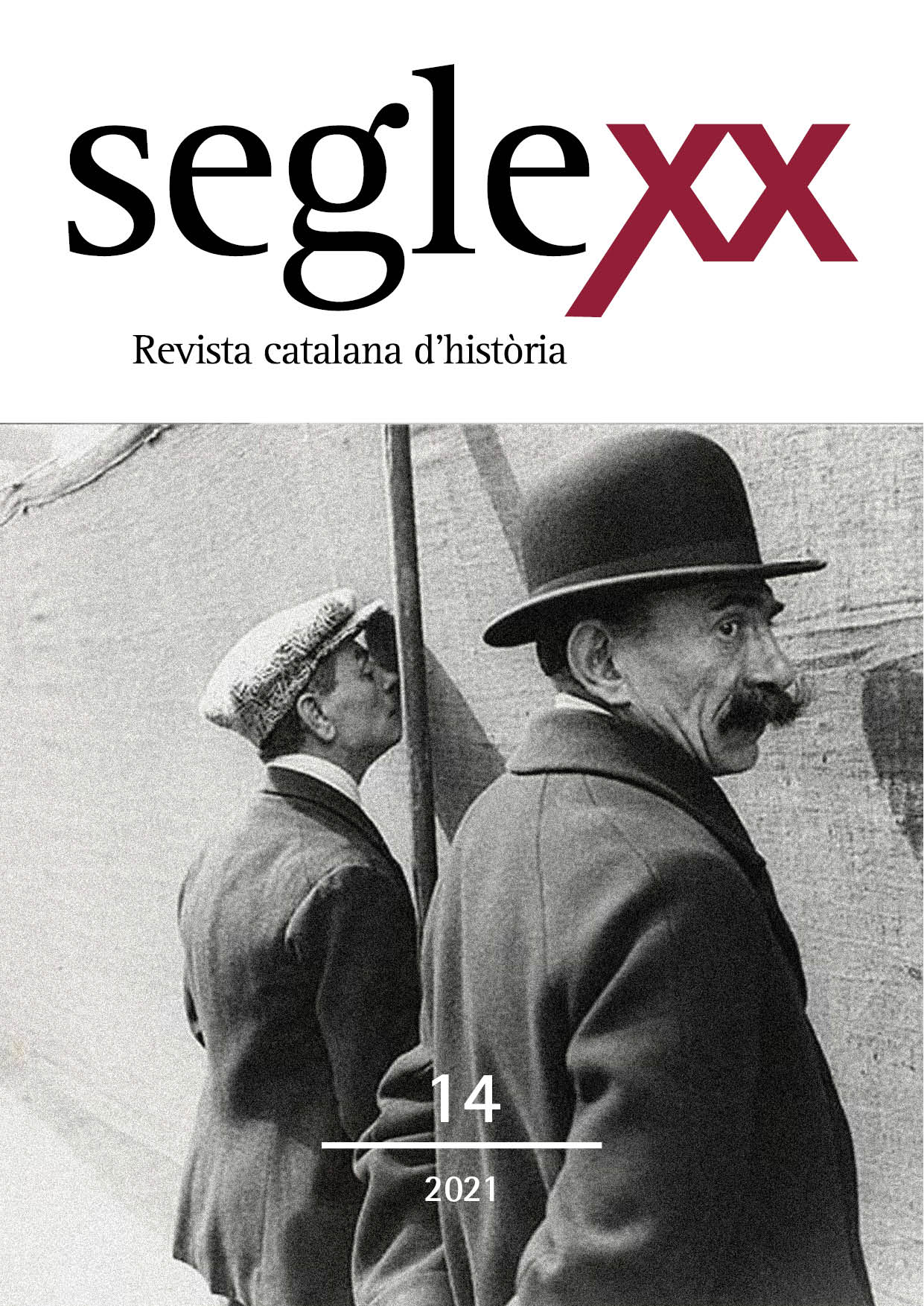The daily construction of emancipation: Celestí Ventura and the cooperative movement of his time (1917-1954)
Keywords:
cooperative movement; trade unions; mutual societies; working-class culture; urban history; BarcelonaAbstract
Since the beginning of the 21st century, a new batch of studies on the history of cooperative organizations has taken an interest in the influence of this eman- cipation movement on the shaping of working-class neighbourhoods. From an urban, micro-historic perspective, the research on cooperatives and their members has nourished the analysis of the relationship between the cooperative movement, the working-class movement and grass-roots associations.The study of the path pursued by CelestíVentura Raballí (1892-1969) along syndicalism and cooperative movement, and his dedication to the cooperative La Fraternitat de la Barceloneta (Barcelona), allows us to deepen those relationships twofold: first of all, we can examine the role of the cooperatives as the rearguard of the working-class move- ment and, more generally, the reciprocal influences between the working-class struggle and the expansion of the cooperative movement; secondly, by considering the way Ventura took part in trade unions, cooperatives and mutual societies, we can explore the multiple functions of the working-class association movement in Catalonia for much of the 20th century.
Downloads
References
Alari, E.; Gorostiza, S.; Dalmau, M., 2016. La forja solidària d’un barri portuari. La Barceloneta obrera i cooperativa. La Ciutat Invisible, Barcelona.
Dalmau, M.; Miró, I., 2010. Les cooperatives obreres de Sants. Autogestió proletària en un barri de Barcelona. 1870-1939. La Ciutat Invisible, Barcelona.
Dalmau, M., 2015. Un barri fet a cops de cooperació. El cooperativisme obrer al Poblenou. La Ciutat Invisible, Barcelona.
Dalmau, M.; Masip, M., en premsa. El moviment feminista cooperatiu. L’Agrupació Femenina de Propaganda ooperatista. Cossetània, Valls.
Direcció General de Cooperatives, 1984. Informe sobre els patrimonis confiscats a les cooperatives el 1939. Departament de Treball de la Generalitat de Catalunya, [Barcelona].
Duch I Plana, M., 2009. Micaela Chalmeta. Fundació Roca i Galès, Barcelona.
Ealham, C., 2005. Class, Culture and Conflict in Barcelona 1898-1937. Routledge, Londres i Nova York.
Estivill, J.; Dalmau, M., 2019. «L’estat de la qüestió sobre la història de l’economia social i solidà ria», a Duch, M.; Arnabat, X.; i Gavaldà, A. La Catalunya associada (1868-1938). Publicacions de la Universitat de València, València.
Gabriel, P., 1981. Classe obrera i sindicats a Catalunya, 1903-1920. Tesi doctoral, Universitat de Bar celona, Barcelona.
Huertas, J. M., 1982. Obrers a Catalunya: manual d’història del moviment obrer, 1840-1975. L’Avenç, Barcelona.
Marín, D., 2010. «Memòria cooperativa, un estel en la lluita contra l’oblit», a Dalmau, M.; Miró, I. Les cooperatives obreres de Sants. Autogestió proletària en un barri de Barcelona. 1870-1939. La Ciutat Invi sible, Barcelona.
Mayayo, A., 1985. «El naixement del moviment cooperatiu a la Conca de Barberà», Estudis d’Història Agrària, 5, pp. 133-155.
Miró, I.; Dalmau, M., 2014. Joan Rovira i Marqués: el cooperativisme obrer i col·lectivista. Fundació Roca i Galès i Cossetània Edicions, Barcelona i Valls.
Oyón, J. L., 2008. La quiebra de la ciudad popular. Ediciones del Serbal, Barcelona.
Oyón, J. L., 2010. «Història urbana com a història social obrera: algunes reflexions sobre La quiebra de la ciudad popular», Segle XX, revista catalana d’història, 3, pp. 149-163.
Peiró, J., 1979 [1925]. Trayectoria de la cnt. Júcar, Madrid.
Pérez Baró, A., 1970. La cooperación de consumo en Cataluña. Tesi doctoral, Facultad de Ciencias Políticas y Económicas de la Universidad de Madrid, Madrid.
Pérez Baró, A., 1972. Les cooperatives a Catalunya. Institut d’Estudis Catalans, Barcelona.
Pérez Baró, A., 1989. Història de les cooperatives a Catalunya. Crítica, Barcelona.
Ventura, C., 1927. El trovador cooperatista. Tip. Cosmos, Barcelona
Downloads
Published
Versions
- 2022-01-26 (2)
- 2022-01-26 (1)
How to Cite
Issue
Section
License

This work is licensed under a Creative Commons Attribution-NonCommercial-NoDerivatives 4.0 International License.
The author who publishes in this journal agrees to the following terms:
a. The author exclusively assigns all intellectual property rights to the publisher worldwide and for the entire duration of the applicable intellectual property rights.
b. The publisher will distribute the texts under the Attribution-NonCommercial-NoDerivs 4.0 International, which allows the work to be shared with third parties, as long as they acknowledge the authorship, the initial publication in this magazine and the conditions of the license.












